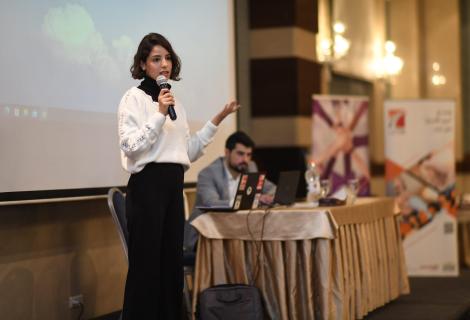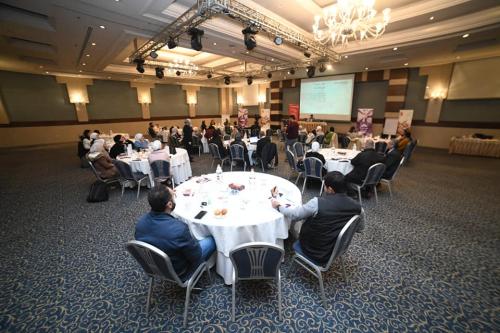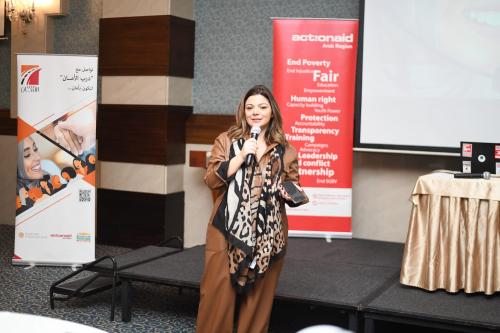Reflecting on innovative strategies to combat gender-based violence

In Jordan, it is very difficult to break the barrier of silence on a topic like gender-based violence (GBV). For the team at ActionAid, this does not mean we stop. It means we become more strategic.
In 2020, ActionAid Arab Region (AAAR) launched a chatbot as an innovative tool to fight GBV and promote women's rights. The aim of the chatbot is to allow women and girls to reach out to services that assist survivors of GBV in an accessible and user-friendly way. Survivors are given information and support in a way that overcomes the physical and structural barriers of a patriarchal system, fighting the normalisation of GBV which is prevalent in Jordan.
In December 2022, a reflection meeting was held with local authorities, UN agencies and international NGOs to examine progress, to celebrate success stories, to gather feedback for improvement and to discuss ways in which more people can be reached.

“The most challenging part is defying the adherence to a system of conservative norms that stigmatise women and to speak out against harassment, discrimination and violence against women,” said Moath Leil, an influencer from Shezomedia, a partner on the chatbot project, noted during the reflection meeting.
“It is not easy for people to talk about or report their cases, and it's very challenging to push people to break the silence and report violence as women are afraid of being stigmatised.”
Shezomedia joined AAAR in creating awareness of the chatbot through a series of videos in November 2022. This campaign was highly successful and increased the number of users on the platform significantly, particularly younger women and girls.
Leil explained that women do not disclose GBV to protection authorities or access healthcare because of social norms that blame the woman for the assault.
“She was out alone after dark.”
“She was not modestly dressed.”
“She was working outside the home.”
“Norms like these prioritise protecting family honor over the safety of the survivor, and institutional acceptance of GBV as a normal,” he said.
While input from various stakeholders during the reflection meeting highlighted how hard it is to break the barrier of silence in approaching a sensitive topic like GBV in Jordanian society, particularly in rural communities, the feedback provided also highlighted the systemic change in patriarchal power dynamics that the chatbot managed to achieve in two years. There is a profound need for a tool like this.
In 2022 alone, the chatbot was used by 3,402 Jordanian women, and through those interactions the team went on to provide direct psychosocial support services to 250 people.

Based on reflections from meetings like this one, as well as consumer feedback, AAAR plans to grow the chatbot, evolving it to reach more people and drive further change. There are plans to expand the geographical footprint in governorates within Jordan and beyond into Lebanon, as well as the topics that the chatbot tackles, branching out to include legal services, child protection, and sexual and reproductive health. The chatbot project team is also working on increased outreach and expanded service offerings, focusing particularly on psychological support.
Initial reflections on the chatbot confirm that it is indeed a tool that successfully challenges the distribution of power in a non-inclusive patriarchal system. The statistics, the success stories – even the clear challenges presented by those involved in the project – all serve to ignite our passion to do more, to empower more people through innovative tools like this and shift the balance of power one user at a time.

